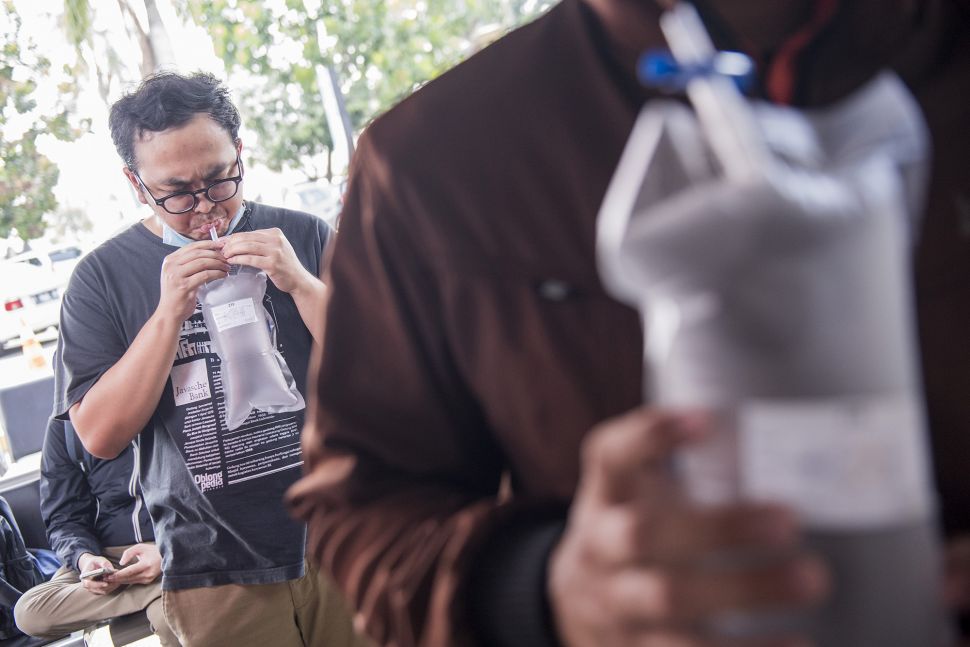Tulisan saya menyambut pelaksanaan Sistem Jaminan Kesehatan (JKN) dan Badan Penyelenggara Jaminan Sosial (BPJS). Diterbitkan di Harian The Jakarta Post pada Jum’at, 3 Januari 2014. Silakan disimak, dikomentari, dikritik, atau disebarluaskan.
Salam,
Ahmad Fuady
====================================================================
Will everybody smile?
Implemented via social security providers (BPJS), hopes and worries are mixed together. The JKN is certainly an Indonesian’s dream. However, we are still wondering whether the system will provide the finest universal health coverage and satisfy all stakeholders.
Some problems include rushed regulations as New Year’s Day approached, an unfinished financing and payment system and the availability of providers. The delays have resulted in uncertainty for nearly all stakeholders.
Providers remained uncertain how they will be paid by this system, until the Health Ministry issued regulation No. 69/2013 near the end of the year. However, its categorization of “mild”, “moderate” and “severe” ailments entitled to coverage of medical rehabilitation, for example, still lack explanation.
Further, some costs are set higher than prior costs in the Indonesia Case-Based Group (INA-CBG), the diagnostic-based reimbursement system applied in the healthcare plan — but some are cheaper.
Some reimbursement is delivered according to working diagnosis, regardless of a patient’s other medical problems. The cost paid by the system may be much lower than that required for treatment, leading to scepticism of poorer quality hospital services.
Moreover, the poor dissemination of information to hospitals, particularly in rural areas, leaves confusion because of different information and unanswered questions. Medical cases may be treated by various types of medicines and therapeutic modalities. For example, two patients may have similar diagnosis, spondylitis tuberculosis (an infection of tuberculosis on the backbone), but physicians may consider different treatment. One patient may receive medicine only, but the other one receives psychotherapy, or even bowel training and physiotherapy, because of complications of mental and physical conditions.
In the above reimbursement system, the payment does not consider any additional diagnosis and peculiarity of the case.
Further, physicians cannot prescribe medication outside the nationally set drugs, leading to “missing” medicines actually allowed in prior benefit packages.
This would lead patients to visit private providers, leading to the inefficiency of the JKN.
How about existing providers? At the level of primary care, the government targets coverage of about 3,000 for each general physician. This means we need at least 80,000 physicians but the available medics are extremely low. Yet, primary care is the backbone of national health insurance, so we require adequate, qualified primary physicians to become proficient first contacts and gatekeepers of health services.
Payment for primary-level physicians is another concern. With a government allocation of physicians at Rp 4,000 (US 33 cents) to Rp 6,000 per capita of the 3,000 potential patients, a physician could gain Rp 12 million to Rp 18 million per month. Assume that 10 percent of the allotted patients, or 300 of them, fall sick and need primary treatment each month, while each visit costs Rp 30,000; the physician’s income will be only Rp 3 million to Rp 9 million per month. Is this acceptable for a competitive salary?
It depends much more on the physician’s approach. They should try to reduce visits below 10 percent through excessive health promotion and prevention strategies. It is easy to say, but terribly hard to practice. Altering community behaviour from being curative medicine-minded to a healthy lifestyle with various prevention methods is like climbing a mountain. Some costs, including that of chronic, non-communicable diseases, may be impossible to reduce, but controlling the diseases may be helpful. It is complicated to conclude whether a current physician’s incomes are worthy or not.
Yes, national health insurance is not well-prepared because of political pressure leading to rushed preparation. However, we should not step back. The government should be open to criticism and revise unfavourable regulations, while physicians should keep trying to provide the best quality care.
Putting smiles on the faces of all stakeholders may be impossible in the current situation. People from Sabang to Merauke require adequate numbers of primary-level physicians with an excellent quality of service.
The government, as a consequence, has to apply innovative strategies to produce primary-level physicians and deploy them across the country, to enable as equal access as possible to their services. The payment system should be evaluated within the first three months to remodel the system if required.
The BPJS and the JKN are not the end results of health coverage, but improvements day by day are imperative.
The writer is a general physician and lecturer at the faculty of medicine at the University of Indonesia (UI) and is preparing his doctoral program focusing on health economics and policy in the Netherlands.








